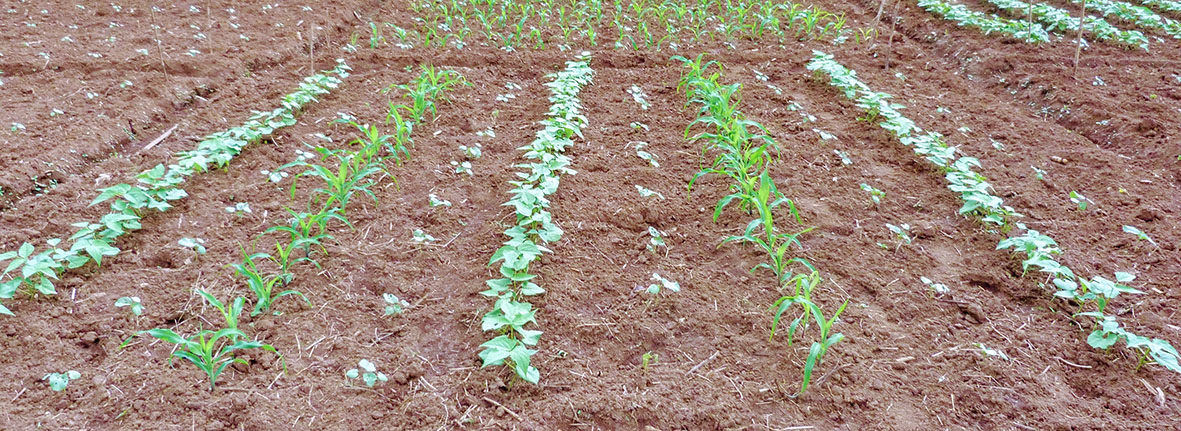DiverBeans
Optimizing bean production in North Macedonia

Diverse agricultural practices such as intercropping provide vast opportunities for development of sustainable agricultural systems as they can enhance crucial ecosystem services and provide more food per unit area. Common bean (Phaseolus vulgaris L.), grown worldwide for its edible beans, is one of the most important legume crop, providing 15% of total daily calories in parts of Africa and America. As a legume, P. vulgaris fixes atmospheric nitrogen into biologically useful forms, reducing the need for synthetic fertilizers. It can further provide the fixed nitrogen to neighboring plant species, facilitating their growth.
Beans are commonly grown and consumed in North Macedonia. Here the soil is suitable for bean production; however, factors such as high temperatures and low relative humidity hamper the production of beans. Our project aims to optimize bean production in Macedonia by using different agroecosystem diversification strategies and irrigation measures. We will explore the mechanisms that make certain cropping mixtures more productive than others and, further test the effect of these measures on biodiversity and relevant ecosystem functions. The project will apply a transdisciplinary approach from the outset, initiated by a stakeholder workshop (WP1) to identify tacit knowledge of the stakeholder community on Phaseolus production in Macedonia. Stakeholders will be continuously involved in the development of the project via activities such as participatory field trials and demonstration events.
Outreach:
- World Food System Center: https://worldfoodsystem.ethz.ch/
- Facebook: external page https://www.facebook.com/christian.schoeb
- Twitter: external page https://twitter.com/ChristianSchob